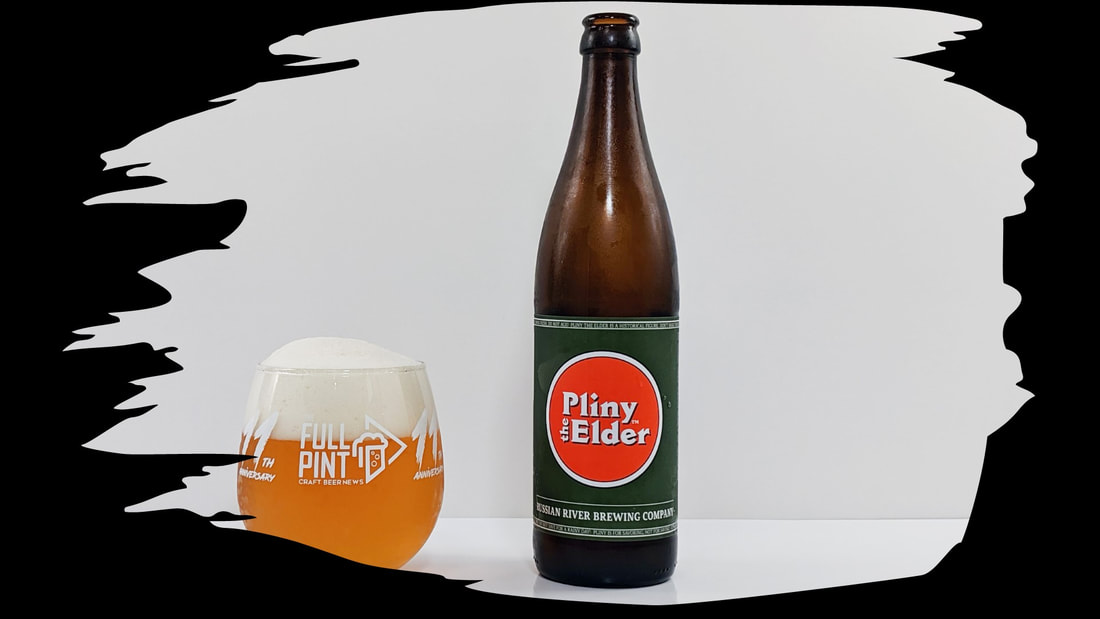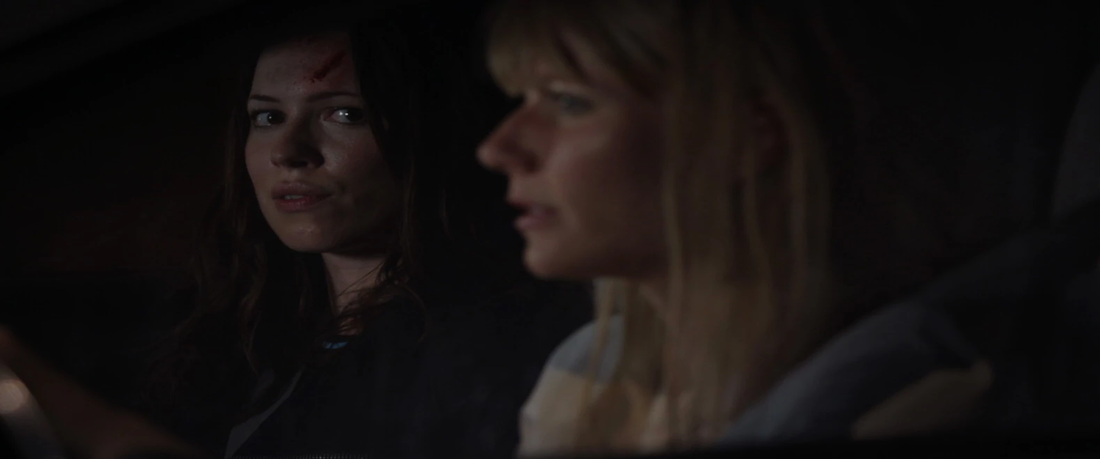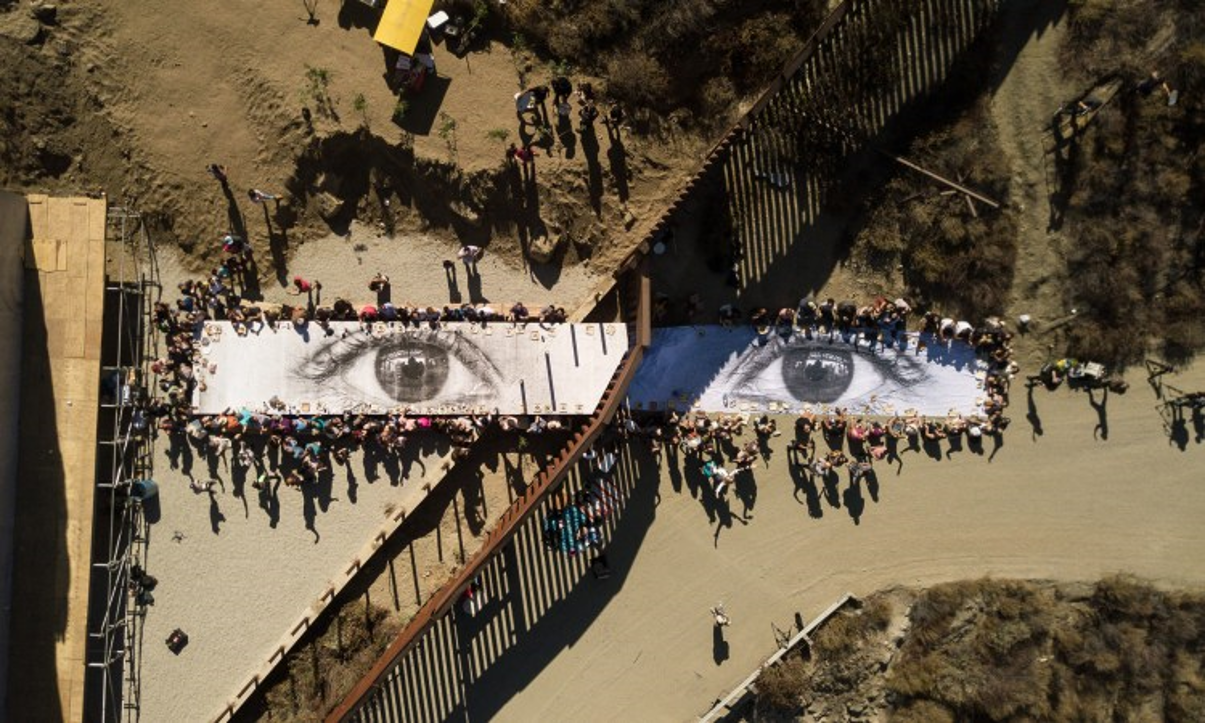Scott AndersonEzekiel 34:11-24 † Psalm 100 † Ephesians 1:15-23 † Matthew 25:31-46
A video version of this meditation can be found here. It’s all hindsight. All of it. No one was doing what they were doing in the story because they thought they were doing it “unto Christ.” They were just doing it. The surprise was that it was, or that it is the Holy One in those who were vulnerable. And everyone was surprised!. Everyone was surprised that this would be the thing that would set them apart—right from left, sheep from goats. When did we see you hungry or thirsty, or a stranger or with no clothes on your back, or locked up?
0 Comments
Scott AndersonZephaniah 1:7, 12-18 † Psalm 90:1-12 † 1 Thessalonians 5:1-11 † Matthew 25:14-30
A video version of this sermon can be found here. The kingdom of God, the reign of God, the world in which God’s will is done is like this: a man going on a journey summoned his servants and entrusted his considerable riches to them. We’ve talked about this parable before. It is a sticky one—one of those that can be read in multiple ways depending on how you identify the players, depending on the way you read it. And there may be no right answer to it, except the one that gets us closer to the deep truth of God’s life in the world and in us in this moment in time, which is probably the one that disturbs and challenges us the most. I suspect we know the traditional reading. This is a story about the importance of doing something with the gifts and the talents we have been given. And this is true, isn’t it? It is important. The master to whom the talents belong is God, or maybe Jesus, and the servants are the disciples—us, you and me—who take what we’ve been given and use it for good, or don’t perhaps to our peril. Paul kind of sums up this idea in his letter to the Thessalonians: “Encourage one another and build up each other, as indeed you are doing.” Make investments in God’s ways, in other words, and be cautious when God’s ways challenge those ways to which we have grown accustomed. There’s much to be drawn from this, and some difficulties as well. How, for example, do we reconcile this callous or even cruel absentee owner for whom forgiveness seems to be a rare commodity, who seems to take delight in enriching those who are already rich and throwing the one who already had little into the darkness—how do we reconcile this image with the God who in Jesus is love and justice equally? How do we imagine that this one who gave his life for the sake of the world could be so hard-hearted? Scott AndersonAmos 5:18-24 † Psalm 70 † 1 Thessalonians 4:13-18 † Matthew 25:1-13 A video version of this sermon can be found here. Keep awake! That’s the message Jesus draws from this murky story in Matthew right before the parable of the talents which we’ll see next Sunday. There’s all this detail in the story—a bridegroom, but no bride anywhere to be found; lamps (which are really torches) and oil. Five brought oil, the other five didn’t. It’s not that they didn’t bring enough, they just didn’t bring any, or maybe they didn’t have any. And apparently there’s an all-night oil shop open somewhere down the road. All ten bridesmaids--virgins actually, fall asleep, by the way. All of them. The bridegroom arrives late, seriously late, and five make it into the party and five are shut out. And Jesus tells his listeners to keep awake. Scott AndersonEzekiel 18:1-4, 25-32 † Psalm 25:1-9 † Philippians 2:1-13 † Matthew 21:23-32 Some of the most striking painted rock art in the world is found in the sea caves of Norway’s western coastline. They are located in wild, remote, Arctic areas where peaks plunge into the ocean, hammered by ice and wave actions over millennia. There are twelve such painted caves, containing around 170 simple stick figures, arms and legs stretched wide as if they are dancing or leaping. These are different that the far more common petroglyphs which have been carved into rock here and throughout the world by the ancients. These are paintings, made using iron oxide pigment, daubed using fingers or brushes some two to three thousand years ago by Bronze Age hunter-gatherer-fisher people who made their lives along an isolated coastline. The art that they made was preserved in remote caves in wild places. Scott AndersonJonah 3:10-4:11 † Psalm 145:1-8 † Philippians 1:21-30 † Matthew 20:1-16
You can find a video copy of this sermon in the context of worship here. They are both right, aren’t they? This is no case of fake news. It’s just a problem with perception and location and what’s fair. The laborers who were hired first thing in the morning, who went out and put in their twelve hours under the hot sun cannot abide that they are paid the same as those last to join the party, who work an hour at best—and get just as much. It is not fair. Or, to be more precise, it is not equitable. This is true. And yet, the landowner has an equally valid point, doesn’t he? Did I not keep our agreement? We negotiated for the usual day’s wage at the beginning. This is what I’ve given you. How have I wronged you? Scott Anderson Isiah 55:1-5 † Psalm 145:8-9, 14-21 † Romans 9:1-5 † Matthew 14:13-21
Eric Law, the episcopal priest tells the story of his childhood table. It was always full—family, friends, travelers. Twelve or more was not unusual. Dinners were stuffed with stories and laughter. As you might imagine, as a kid, seeing this table, Law just assumed they were rich. As he grew older, he discovered this was not the case. His mother was very resourceful, a bargain shopper, to be sure, but even that did not explain the miracle of their table. Law recalls the particular way they dealt with leftovers as a window into the truth: Jan DittmarIsaiah 55:1-9; Psalm 63:1-8; 1 Corinthians 10:1-13; Luke 13:1-9
Not about sin, about forgiveness If you scan the worship aid and hymns this week, you might note, as I did, that they include more language than usual about sin. Yipee! Aren’t you glad you came to worship this week? This is Lent, the preparation period before Easter, an opportunity for look inward. But the focus this week isn’t about sin, it is about forgiveness. We sometimes carry guilt around inside ourselves. Maggie talked last week about negative self talk, beating ourselves up when we talk to ourselves. But even if you aren’t a running-commentary kind of person and don’t talk to yourself, you might inwardly feel guilt. Sometimes we carry a burden of thinking we are responsible, or have done wrong and need forgiveness. We feel a darkness and separation, we create our own personal hell. Confession in the Church is intended to release us from these burdens and free us to feel forgiven and be our best selves. Maggie BreenJob 38:1-11 † Psalm 107:1-3, 23-32 † 2 Corinthians 6:1-13 † Mark 4:35-41 My Kids and I were watching Iron Man 3 on Friday night. We are working our way through Marvel movies – escaping the news, looking for the good guy, enjoying the quick wit. We were laying on various couches when the scene turned to Pepper Potts, the hero’s very capable assistant and now girlfriend. She was driving a car, fleeing a dangerous scene, with another woman Maya Hansen in the passenger seat. Maya is a brilliant scientist and previous acquaintance of the aforementioned hero – Mr. Stark. One woman turns to the other and they talk very briefly about the work in which the woman scientist is engaged
Molly pointed from her couch and gasped – oh, I think this means this movie passes the feminist movie test. Wait, what? There is a feminist movie test? Yes, she explained there is this test used to rate movies. You ask of a movie – does it have two women in it, does they have names, and do they talk to each other about something other than their thoughts or their relationship with a man. In that one scene Iron Man 3 just scraped over the bar. This test it turns out is called the Bechdel test. Scott AndersonEzekiel 17:22-24 † Psalm 92:1-4, 12-15 † 2 Corinthians 5:6-17 † Mark 4:26-34 The news program 60 Minutes recently aired a feature on the French photographer who calls himself JR.[i] You may not have heard of him, but I’ll bet you’ve seen his work. Here’s a photograph that popped up in September on the US-Mexico border—a 64-foot tall picture of a Mexican child named Kikito who lives just on the other side of the fence. Because of its location on the Mexican side, US border patrol agents can’t do anything about it. So Kakito can show off his beautiful smile and his playful curiosity, display his humanity for those who have ears to hear and eyes to see, calling into question how our choices impact others, how we see one another, how our policies bless or curse other families. JR has borders in mind a lot in his art—and the crossing of them. His passion flows out of his sense that we are deeply connected, that we share much in common—our hungers and humor and hope.
Scott AndersonGenesis 3:8-15 † Psalm 130 † 2 Corinthians 4:13-5:1 † Mark 2:20-35
I wanted to redeem Jesus’ family. I wanted things to be better in the end. I wanted Jesus’ dilemma to end like the version of Heinz’s dilemma in which they end up on the beach, with her made well from the medicine she needed, and maybe with a fairer health system in place that values people over profit. I wanted the garden before the serpent shows up and everyone starts blaming everyone else for their choices. So I went to the end of Mark where we find two Marys. But, as much as I’d like to tell you Jesus’ mother shows up at the foot of the cross to be entrusted to John or at the empty tomb to wonder where they’ve laid him, I cannot. In Mark there is no happily-ever-after with his family. One writer puts it graciously, suggesting Mark, unlike the other gospels, did not seem to know of any positive traditions about the family of Jesus.[i] This is the earliest gospel. It is written closest in time to the conflict and heartbreak we suspect these followers of the reformer/disrupter Jesus experienced as he created something new from a religious tradition that had become misshapen and corrupt. We know enough about broken families and broken relationships these days and in this political climate to have learned that sometimes the best move is to separate ourselves from what has become abusive or corrosive—even among our closest families. Sometimes we must separate for our well-being and even our survival, even as we try to hold onto our memory that we belong together, that we are one family. |
St. Andrew SermonsCategories
All
|










 RSS Feed
RSS Feed